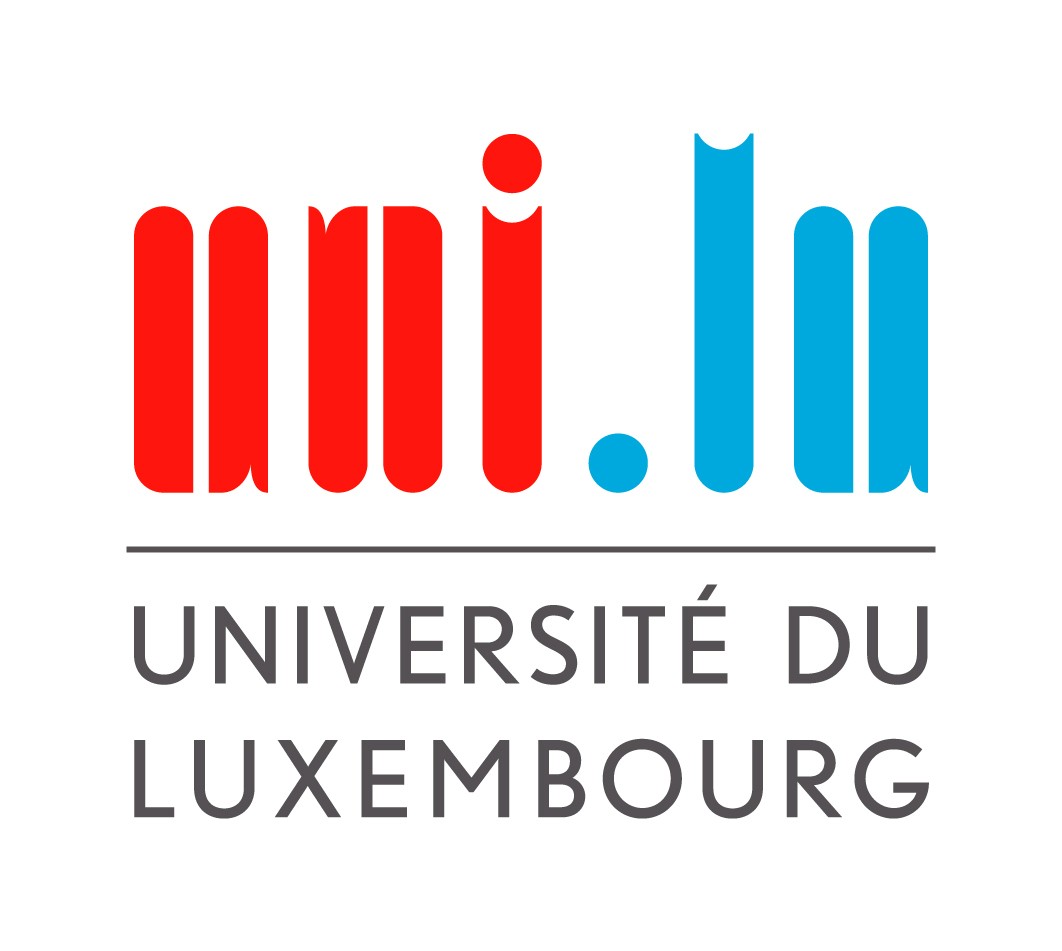General Information
Time and venue
The sessions take place every
Wednesday from 16:00 to 17:00 in room
MNO 1.010 on Campus Belval.
Aim
Dedicated to PhD students, the PhD Seminar is an important part of the research training offered at the
Department of Mathematics of the
University of Luxembourg. The PhD Seminar has a twofold
objective:
- To give PhD students the opportunity to present their fields of research
and some topics and problems studied in those fields.
The usual audience of the PhD Seminar is composed by PhD students and
young researchers of the Department of Mathematics. The atmosphere is informal, so that all participants
can ask the questions they want.
Comments and suggestions on the presentations are also highly encouraged.
- To provide a good general mathematical background, in relation with the
research interests of groups of PhD students
and other participants of the PhD Seminar.
In this perspective, the PhD Seminar proposes all over the academic year
series of introductory minicourses, held by
the young researchers of the Department of Mathematics.
Who can be a speaker?
All contributions for talks or minicourses are welcome, including from people external to Luxembourg's
Department of Mathematics!
If you want to make a presentation, please provide the organizers with a title and an abstract of your talk.
Lecture notes in any form are welcome as well.
Organisers
Summer semester: Talks
-
20 February 2020
Organisational meeting
-
26 February 2020
Alisa GOVZMANN,
Parametrized complexity of bin-packing
Abstract I will first introduce and explain one of the seven famous millennium problems posed by the Clay Mathematics Institute and known as the P vs. NP problem. Then I will analyze the bin-packing problem, which is known to be NP-complete and hence might be used in order to solve the P vs. NP problem. I will introduce a runtime analysis method known as parametrized complexity and show a nice parametrized algorithm for bin-packing.
-
04 March 2020
Emiliano TORTI,
On the integral polynomials ax2 + bx + c
Abstract In this talk, I will discuss the problem of classifying discriminants of integral quadratic polynomials in one variable. Despite the elementary setting, the problem is quite deep and it represents a bridge between Gauß' Disquisitiones Arithmeticae and modern number theory.
-
11 March 2020
Thi Hanh VO,
Algorithm for curves of the same type
Abstract Let a and b be closed curves on a compact hyperbolic surface. We propose an efficient algorithm for detecting whether they are of the same type.
-
25 March 2020
Valentin GARINO,
Approximation schemes of stochastic integrals driven by fractional Brownian motion
Abstract A fundamental topic in contemporary probability and statistics is to quantify the efficiency of asymptotic estimator by providing a wide variety of central limit-type theorems.
I will more specifically present some recent results on stochastic integrals driven by Brownian motion and fractional Brownian motion. After introducing properly the notions mentioned above, I will state and prove a central limit theorem for the Euler-Maruyama type approximation.
-
Abstract In my research I study the arithmetic properties of algebraic groups,
which are algebraic varieties with a group structure. In this talk I
will give a definition of algebraic group and I will then explain how
the "functor of points" can give us a way of seeing these objects that
does not rely on algebraic geometry. In the second part we will se what
kind of field extensions arise from the points of an algebraic group.
-
Abstract We will study the properties of the lattice of non-crossing partitions. Among other things, we will describe in detail the structure of its intervals and its Möbius function. Then we will use these tools to define free cumulants, which are fundamental objects in the study of non-commutative probability.
-
Abstract Symmetric _n_-ary bands are _n_-ary semigroups _(X,F)_ such that _F_ is invariant under the action of permutations and idempotent, i.e., satisfies _F(x,...,x) = x_ for all _x ∈ X_. We provide a constructive description of the class of symmetric _n_-ary bands. In particular, we introduce the concept of strong _n_-ary semilattice of _n_-ary semigroups and we show that the symmetric _n_-ary bands are exactly the strong _n_-ary semilattices of _n_-ary extensions of Abelian groups whose exponents divide _n-1_.
-
13 May 2020
Jill Marie-Ann ECKER,
The low-dimensional algebraic cohomology of infinite-dimensional Lie algebras of Virasoro-type
Abstract This talk focusses on my research project, which deals with the algebraic cohomology of Virasoro-like Lie algebras. After a brief motivation, I will provide an overview of results in this domain that are known, including my own. Subsequently, I introduce the Lie algebras considered in my talk, which include the Witt algebra, the Virasoro algebra itself and the multipoint Krichever-Novikov vector field algebra. After introducing the so-called natural modules, I provide a description of Lie algebra cohomology, including some interpretations of the low-dimensional Lie algebra cohomology. Finally, I provide details about some of my results.
-
Abstract In this exposition, we will discuss the classical problem in number theory, which is diophantine approximations. To state simply, given an irrational number, we want to find the best and as many rational approximation to it. Initially studied but Dirichlet, Hurewicz, Roth et al, we will see how can basic hyperbolic geometric tools and interpreting concepts in the right way can lead to a more geometric interpretation of these results. There is also, an intricate relationship of diophantine approximations of irrational number with degenerate quadratic forms, which time permitted will also be discussed in brief. The whole talk will be based on a recent article by Boris Springborn.
-
Abstract Luo-Tan identity is the only one we have known so far on the moduli space of closed hyperbolic surfaces. In this talk, I will give the idea of this beautiful identity and some interesting applications of it.
